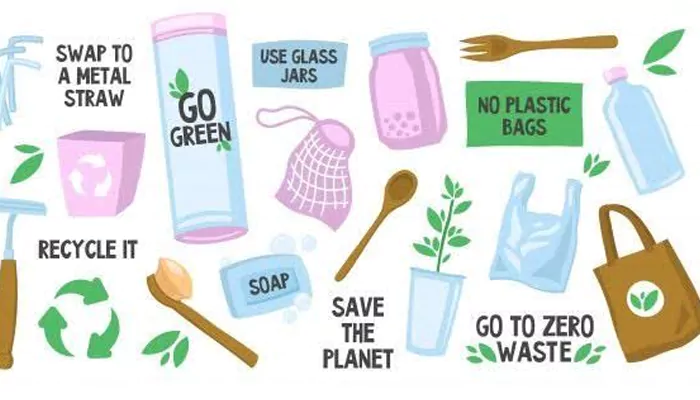Record Coral Bleaching Hits 74 Countries – Will Future Generations See Them?
- Soham Halder
- 1 year ago
- 5 minutes read

Colourful coral reefs, when affected by increased sea temperatures and associated acidification become colourless, which is known as Coral bleaching.
Beautiful coral reef along with exciting marine plants and animals make coastal region attractive to tourists. Reef areas like Great Barrier reef, Lakshadweep, Andaman and Nicobar Islands are always preferred by tourists during summer season. However, the current situation is extremely tragic! Over 77% of coral reefs have been facing the bleaching globally. Will we loose these natural wonders? Let's find out.
A staggering 77% of the world’s coral reefs have turned white due to the stress caused by warming oceans. The event has been the most extensive recorded event of bleaching, experts say https://t.co/AhifN8iODg pic.twitter.com/w5KMnZkxgA
— Reuters Science News (@ReutersScience) October 18, 2024
(Credit - X/@ReutersScience)
About Ongoing Crisis:
Believe it or not, climate change is real and it's destructing nature. Not only it's impacting us on the ground, it is also destroying lives in the ocean. Generally, excess heat leads to change in seawater pH and acidity causing rapid destruction of marine species.
The National Oceanic and Atmospheric Administration (NOAA) has reported the current coral bleaching event, “began in February 2023, has become the most extensive on record”. It has already impacted over 74 countries.
NOAA Coral Reef Watch coordinator Derek Manzello stressed on the severity of the situation: “this event has already exceeded the previous record by more than 11% in about half the time.” In the report published four months ago, it was mentioned: “It's looking like the entirety of the Southern Hemisphere is probably going to bleach this year. We are literally sitting on the cusp of the worst bleaching event in the history of the planet.”
Meanwhile, during last global mass coral reef bleaching incident during 2014 to 2017, one third of the coral reefs in the Great Barrier Reef faced loss of vibrant colour.

The Future Looks Scary:
As rate of global warming along with climate change are growing, we are entering into an unprecedented scary future. This further raises concerns about the long-term survival of coral reef ecosystems globally.
Roxy Mathew Koll, a scientist at Indian Institute of Tropical Meteorology predicted: “The future increase in heat content is comparable to adding the energy equivalent of one Hiroshima atomic bomb detonation every second, all day, every day, for a decade… Marine heatwaves, periods of extremely high temperatures in the ocean, are expected to increase from 20 days per year to 220–250 days per year. This will push the tropical Indian Ocean into a near-permanent heatwave state.”

Impact on Economy:
People in coastal region depends on mostly two sources of income: tourism and fisheries. Due to climate change, marine biodiversity is getting destroyed rapidly . Furthermore, tragic loss of coral reef beauty decreases growth of tourism sector. So, climate change can potentially destroy the livelihood of people in these vulnerable coastal areas.
Meanwhile, coral reefs contribute around $2.7 trillion every year to global goods and services via fisheries, tourism, as well as marine biodiversity.
Endangered Beauty:
Scientists had previously estimated that over 90% of coral reefs would be destroyed at 1.5°C of global warming, as per the current situation, this threshold has decreased to at 1.3°C.
Global fishery sustainability dropped from 90.0% in 1974 to 62.3% in 2021 due to overfishing, pollution, climate change & poor management. Record ocean temperatures have caused a fourth global coral bleaching event.
— UN DESA Sustainable Development (@SustDev) October 16, 2024
Learn more: https://t.co/CvKvSXufbg#SDGreport pic.twitter.com/m5LW6GhbTE
(Credit - X/@SustDev)
“Such heat stress levels signify a severe threat to coral health, leading to extensive bleaching where corals lose the symbiotic algae (zooxanthellae). If the DHW continue to rise, reaching beyond 12°C-weeks, it could precipitate an unprecedented biodiversity crisis due to multispecies mortality,” said KR Sreenath, senior scientist at CMFRI.
If the situation persists, it will impact marine biodiversity, tourism, and coastal livelihood. Thus, immediate action is must in vulnerable areas. Following are some effective conservation strategies.
Only Way to Save Coral Reefs:
We are in vulnerable state under severe heatwave which is promoting coral bleaching. To prevent this, we need to monitor fossil fuels emissions via anthropogenic activities. At the same time, we need to plant more trees, travel in electric vehicles, and embrace natural energy source like sunlight and wind.

Use energy-saving LED bulbs in your house to reduce green house gas emissions. This needs collective efforts from all parts of the society. While visiting any coastal region, be a responsible tourist. Never throw away any waste randomly. If you are participating in scuba diving, avoid touching coral reefs. Do not use any chemicals or creams that have potential impact on marine species.
Even if we are far away from coral reefs, we can participate in conservation of coral reef health wholeheartedly. we need to be aware about our environment. This needs campaign, educational course and tours. Even today, some people send coral reefs as gift to others, which should be stopped. Ultimately, we have only one planet to live!












